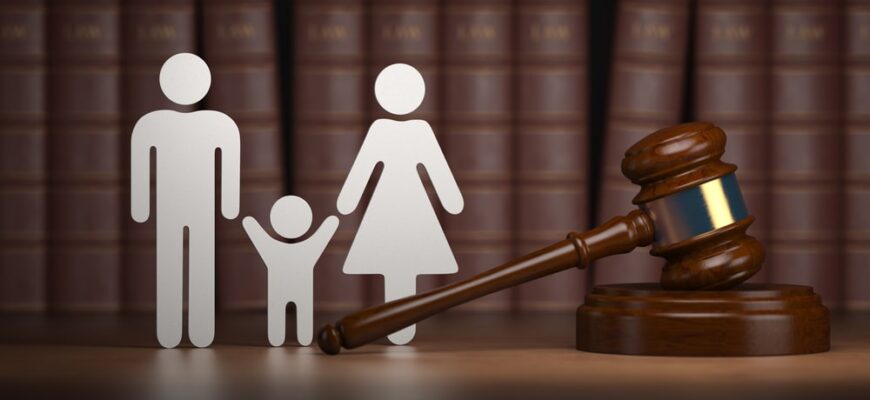How Lawyers Support Minors In Abuse Cases

When a minor experiences sexual abuse in a school setting, the legal process can feel intimidating and overwhelming for both the child and their family. Having an experienced lawyer, like a school sexual abuse lawyer, to guide the case is essential to ensure the minor’s safety, rights, and well-being.
Establishing Trust With The Minor
One of the first steps a lawyer takes is building trust with the minor. Children are more likely to share important details about the abuse when they feel safe and understood. Lawyers often work closely with child psychologists or counselors to communicate in age-appropriate ways, ensuring the minor’s comfort throughout the legal process.
Gathering Evidence Carefully
Evidence in school sexual abuse cases can be complex and sensitive. Lawyers collaborate with investigators, school officials, and experts to collect documentation while protecting the child’s privacy. This may include school records, communications, witness statements, and any other relevant material that helps establish the facts of the case.
Protecting The Minor’s Rights
Lawyers advocate for the minor at every stage, from filing a claim to negotiating settlements or pursuing court action. They ensure that the child’s rights are respected and that any interactions with the legal system minimize trauma. In some cases, family law considerations also come into play, especially if the abuse affects custody or visitation arrangements.
Collaborating With Experts
Experts play a crucial role in helping the court understand the impact of abuse on a minor. Child psychologists, medical professionals, and other specialists may testify about the emotional and physical consequences of the abuse. Our friends at Kellogg & Van Aken LLP discuss how expert testimony not only validates the child’s experience but also provides critical context for judges and juries.
Communicating With The Family
Keeping the family informed and involved is another key responsibility. Lawyers guide parents or guardians through each stage, explaining legal options, potential outcomes, and strategies for protecting the child. This collaboration helps families feel supported and empowered during a difficult time.
Focusing On Healing And Justice
Ultimately, a sexual abuse lawyer aims to secure justice while prioritizing the minor’s emotional well-being. By combining legal expertise with compassion and careful planning, lawyers help survivors navigate the complex legal system while minimizing additional trauma. This approach ensures that minors have the support and advocacy they need to move forward safely.
Getting Trusted Help
Handling a case involving a minor requires skill, sensitivity, and patience. With the guidance of an experienced lawyer, children and their families can pursue justice, protect their rights, and begin the journey toward healing. Attorneys like those at Kellogg & Van Aken LLP can attest that working with minors requires a sensitive approach that balances legal strategy with emotional support. Professional support makes a meaningful difference in both the legal and emotional outcomes of school sexual abuse cases.
Was That Search Even Legal?

If you’ve been stopped by police and searched without warning, you might wonder whether your rights were violated. This is common concern for people who are charged with crimes and many cases are significantly impacted by whether or not a search was legal. Searches conducted without proper legal procedures may violate your constitutional rights and result in key evidence being excluded from court.
Our friends at Brown Paindiris & Scott, LLP explain in this post, how searches are supposed to be conducted and how the Fourth Amendment that protects individuals from “unreasonable searches and seizures” is supposed to work.
What Makes A Search Lawful?
For a search to be lawful, police generally need a warrant, probable cause, or your consent. A warrant must be signed by a judge and based on evidence that gives law enforcement a clear reason to search you, your home, or your property. However, there are situations where a warrant may not be required.
For example, if an officer sees evidence of a crime in plain view or believes someone is in immediate danger, they may be able to search without getting a warrant first. That said, if a case can be made for the search violating a defendant’s Fourth Amendment rights, the search could be challenged as part of their defense.
What Happens When Consent Is Involved
Another common situation is when a person gives consent for a search—sometimes without realizing they could have refused. If you voluntarily allow a search, it may be considered legal, even if no warrant or probable cause exists.
The key word is “voluntary.” If police use pressure or threats to get you to agree, that consent may not hold up in court. That’s why it’s important to know your rights. You can say no to a search unless there’s a valid warrant or an urgent situation justifying it.
Challenging Illegal Search And Seizure
If a search was done without following proper procedure, your legal team may be able to file a motion to suppress evidence. This means asking the court to exclude any evidence obtained through the illegal search and seizure. If the court agrees, that evidence cannot be used against you at trial.
Challenging the legality of a search can make a big difference in how a case plays out. Without certain evidence, prosecutors may be forced to reduce charges—or drop them entirely. Working with a criminal defense lawyer who understands how these searches are handled is a valuable part of defending your rights.
When To Contact Legal Help
It’s not always easy to tell whether a search was illegal or not. Officers may not explain your rights clearly, and legal terms can be confusing. If you believe a search of your home, vehicle, or belongings was done unfairly or without proper cause, it’s worth speaking with an attorney.
A criminal defense lawyer with experience in illegal search and seizure matters can evaluate how the search was conducted and whether it may be challenged in court. Don’t wait until the case has moved forward—timing is key when it comes to suppressing evidence or filing motions.
Standing Up For Your Rights
Police must follow the law just like anyone else. If your rights were violated during a search, you have the ability to challenge that in court. Our friends at Brown Paindiris & Scott, LLP discuss how these issues often form the foundation of strong defenses in criminal cases.
If you’re facing charges and believe your Fourth Amendment Rights have been violated, reach out to a trusted defense attorney as soon as possible. You don’t have to handle it alone—and the right legal support can help protect your future.
Understanding Misdemeanor Versus Felony Assault

Assault charges vary based on the details of the incident, the level of harm caused, and the specific laws in place where the offense occurred. The distinction between a misdemeanor and a felony matters because it affects how the case is prosecuted, the potential penalties, and the long-term consequences for the person charged. Attorneys can discuss how this difference can impact both defense strategies and outcomes.
Basic Definitions And Key Distinctions
A misdemeanor assault charge generally involves minor injuries or the threat of physical harm without serious bodily injury. These cases are usually filed in lower courts and carry lighter penalties, such as fines, probation, community service, or brief jail time. In contrast, felony assault involves more serious harm or the use of a weapon. If someone is accused of causing great bodily injury or using an object that could cause death or serious injury, the charge may be elevated to a felony.
Felony charges are handled in higher courts and carry the possibility of long-term imprisonment, higher fines, and more restrictive probation conditions. The court may also impose longer protective orders or other restrictions on the defendant’s movements or contact with the alleged victim.
Factors That Affect The Severity Of The Charge
Several factors can influence how an assault case is classified. The degree of injury to the alleged victim is one of the most important. A visible injury, need for medical care, or permanent damage increases the likelihood of a felony charge.
Another consideration is whether a weapon was used. Ordinary objects can be considered weapons when used to hit someone or create fear of harm. Additionally, the identity of the alleged victim can make a difference. Assaults against public employees like police officers, teachers, or emergency medical personnel are more likely to result in felony charges, even if the actual injury was minor.
The defendant’s past record also plays a role. If someone has prior convictions, especially for violent offenses, prosecutors may be more inclined to pursue felony charges or seek enhanced penalties under repeat offender statutes.
How Prosecutors Decide Which Charge To Pursue
The decision to file a misdemeanor or felony charge is usually made by the prosecutor based on police reports, witness statements, medical records, and video or photographic evidence. In some cases, the decision can change as new evidence emerges. A charge may be upgraded or reduced depending on whether the facts support more serious allegations or show that the initial claims were overstated.
This discretion also means that early representation can make a difference. If a defense attorney can present mitigating evidence—such as a lack of intent, mistaken identity, or provocation—it may lead to a reduction of the charge or even a dismissal. An experienced assault lawyer can often intervene during the early stages of a case to request further investigation or contest unreliable statements before charges are finalized.
Potential Consequences Beyond The Courtroom
Beyond the direct penalties of jail time or probation, an assault conviction—especially a felony—can affect many areas of life. A felony record can make it harder to find employment, qualify for housing, or apply for professional licenses. In some states, felony convictions can also lead to the loss of voting rights or firearm ownership.
Even misdemeanor convictions can create long-term issues, particularly if the case involved domestic violence or resulted in a protective order. These records are often accessible to employers or landlords during background checks and may influence decisions regardless of the underlying facts of the case.
Why The Classification Matters From The Start
One of the first things to assess after an arrest or accusation is whether the assault case will be handled as a misdemeanor or a felony. This classification influences not only the potential sentence but also how the defense should be approached. Attorneys like those at Lai & Turner Law Firm PLLC can attest that early clarity on the nature of the charge often shapes the entire course of a case.
Help After Your Child Has Been Molested

Discovering that your child has been molested is an unimaginable experience for any parent. While the emotional toll is significant, taking the right steps can help protect your child, support their recovery, and pursue justice. A lawyer, like a molestation lawyer, knows that acting promptly and thoughtfully is essential to ensure their safety and well-being.
Focus On Supporting Your Child
Your child’s emotional and physical well-being should be the top priority. Begin by creating a safe and supportive environment for them to express their feelings. Encourage open communication without pressing for details they may not be ready to share. Let them know you believe them and that they are not to blame for what happened.
Be mindful of your own emotions during this time. While feelings of anger, sadness, and confusion are natural, remaining calm when speaking with your child can help them feel more secure.
Seek Medical Attention If Necessary
If your child’s health may have been impacted as a result of sex crimes, seek medical care immediately. A healthcare professional can address any physical injuries, test for potential infections, and provide a medical record that may be valuable if legal action is pursued. Many hospitals and clinics have staff trained in treating and supporting children who have experienced abuse.
Report The Incident To Authorities
Reporting the molestation to law enforcement is a critical step in protecting your child and holding the perpetrator accountable. Provide as much information as you can, but don’t worry if you don’t have all the details. Police and child protection services are experienced in conducting sensitive investigations to gather the necessary evidence.
In many cases, it is mandatory to report suspected abuse to child protective services, even if the perpetrator is a family member or close acquaintance. Doing so can prevent further harm and initiate protective measures for your child.
Seek Counseling Or Therapy
Professional counseling can be a powerful tool for helping your child process their emotions and begin to heal. Look for a licensed therapist or counselor experienced in working with children who have experienced trauma. Therapy can also provide valuable support for you and other family members coping with the aftermath of the incident.
Consider Legal Action
If the perpetrator is identified, pursuing legal action may be an option to seek justice and protect others from harm. Consult with an attorney who has experience handling cases involving child molestation to understand your rights and options.
Attorneys can attest to the importance of gathering evidence, including medical reports, therapy notes, and police records, to build a strong case. Legal professionals can also guide you through the process of pursuing compensation or other remedies to address the impact of the abuse on your child and family.
Build A Support Network
Lean on trusted friends, family, and community resources during this challenging time. Connecting with support groups for families affected by abuse can provide valuable advice and emotional comfort from others who understand what you’re going through.
Moving Forward
While this experience is incredibly painful, taking deliberate steps to protect your child, seek professional help, and pursue justice can make a meaningful difference in their recovery. With the right care and support, your child can begin to heal and regain a sense of safety and trust.
Our friends at Kellogg & Van Aken LLP discuss the importance of holistic care during recovery, emphasizing that emotional healing is just as critical as legal and medical support. As you move forward, remember that you are not alone. Numerous resources, including law enforcement, legal professionals, and counseling services, are available to assist you every step of the way. Speak with your trusted lawyer when you are ready.
Understanding The Federal Sentencing Process And Your Options

Facing federal charges can be daunting, especially with the prospect of sentencing in a federal court. The federal sentencing process is structured and detailed, often involving guidelines that set specific ranges for penalties based on the offense and individual circumstances. Our friends at Stechschulte Nell discuss the importance of understanding this process and exploring the options available to those facing federal sentencing.
The Sentencing Guidelines And How They Work
Federal sentencing is primarily guided by the United States Sentencing Guidelines, a system designed to promote fairness and consistency in sentencing. These guidelines outline specific ranges for penalties based on two primary factors: the severity of the offense and the defendant’s criminal history. Federal crimes are classified by “offense levels,” which rank the seriousness of the crime, and “criminal history categories,” which reflect any prior criminal record. Together, these two factors determine a recommended sentencing range.
The guidelines serve as a reference, and while judges often follow them, they are not strictly mandatory. Judges have discretion to depart from the recommended range if they find particular factors that justify a lighter or more severe sentence. This is why working with a federal criminal defense lawyer can be beneficial, as they can help argue for factors that may favor a reduced sentence or alternatives to prison.
Factors That Can Affect Sentencing
Several factors can influence the sentence in a federal case, both in favor of a lighter sentence and potentially against it. These include:
- Acceptance of responsibility: Defendants who demonstrate remorse or take responsibility for their actions may receive a reduction in their offense level, which can result in a shorter sentence.
- Role in the offense: If the defendant played a minor role in the crime or was not the primary offender, this can sometimes result in a lower offense level.
- Cooperation with authorities: Defendants who assist in an investigation by providing information or cooperating with law enforcement may be eligible for a reduced sentence.
Conversely, certain aggravating factors, like causing harm to others or using a weapon in the offense, may increase the offense level and lead to a harsher sentence. Judges consider these factors carefully, often after both the prosecution and defense have presented their arguments.
Presentencing Investigation Report
Before sentencing, a presentencing investigation report (PSR) is prepared by a probation officer to provide the judge with detailed information about the defendant’s background, criminal history, and involvement in the offense. The PSR can influence the judge’s decision, so it’s essential for the defense to review this report carefully. Defendants have the right to object to any inaccuracies in the PSR, and an attorney can help address any issues or misstatements that could affect the sentence.
The PSR is an important document because it gives the judge a comprehensive picture of the defendant. It includes details such as family background, education, employment, and any history of substance abuse, all of which can play a role in determining the sentence. If you disagree with any part of the report, your attorney can raise objections, and the court may address these concerns during the sentencing hearing.
Sentencing Alternatives And Options
In federal cases, the sentencing options are not limited to prison time. Depending on the case, there may be alternative sentencing options available, including:
- Probation: In some cases, especially for first-time offenders or nonviolent crimes, the court may allow probation instead of a prison sentence.
- House arrest or community confinement: This option allows defendants to serve their sentence outside of prison, with specific restrictions on their movements.
- Fines and restitution: In cases involving financial crimes, the court may impose fines or require restitution to victims as part of the sentence.
These alternatives can vary in their availability and are often dependent on factors like the offense level, criminal history, and willingness to comply with court-ordered conditions. Your federal criminal defense lawyer can help you understand whether any of these options might apply in your case and work with you to present a compelling case for an alternative sentence if it’s feasible.
Appealing A Federal Sentence
If you believe your sentence was unjust or too harsh, you may have the option to file an appeal. However, appeals must be based on specific legal grounds, such as an error in applying the sentencing guidelines or a procedural issue during the sentencing process. An attorney experienced in federal defense can assess your case and help determine whether an appeal is a viable option.
Appealing a sentence is a structured process and may require substantial time and resources, so it’s important to weigh the potential benefits and consult your lawyer about the steps involved.
Moving Forward
If you or a loved one is facing federal sentencing, understanding the process and knowing your options can make a difference. Consider reaching out to a knowledgeable attorney who can provide guidance and work to help you achieve the best possible outcome for your case.
Hiring A Chapter 13 Bankruptcy Lawyer

Chapter 13 Bankruptcy
Filing for Chapter 13 bankruptcy can be an important step toward regaining control of your finances. However, the process can be challenging without the right legal guidance. A Chapter 13 bankruptcy lawyer can provide essential support throughout the process, helping ensure that your case is handled properly and efficiently. Working with a lawyer can make the difference between successfully completing your repayment plan and facing setbacks that could jeopardize your financial recovery.
Developing A Repayment Plan
One of the key components of Chapter 13 bankruptcy is developing a repayment plan that works for both you and your creditors. This plan must be detailed, accurate, and realistic in terms of your ability to make payments over a period of three to five years. A Chapter 13 bankruptcy lawyer will work with you to create a plan based on your income, expenses, and outstanding debts.
It’s important that the repayment plan meets the court’s requirements, as well as addresses creditor concerns. Failing to meet these standards can lead to delays or even denial of your case. By hiring an experienced lawyer, you’ll have the benefit of their knowledge to craft a plan that satisfies the court while still being manageable for you to maintain.
Handling Communication With Creditors
Throughout the bankruptcy process, you will need to communicate with creditors, and in some cases, negotiations may be required to settle debts. This can be a stressful and time-consuming aspect of filing for Chapter 13 bankruptcy. A lawyer will handle these communications on your behalf, ensuring that your rights are protected and that creditors follow the proper procedures.
Ensuring Legal Compliance
The bankruptcy process involves numerous forms, deadlines, and legal requirements that must be met. From filing the initial petition to submitting documentation about your finances and assets, it’s easy to make mistakes if you’re unfamiliar with the process. A Chapter 13 bankruptcy lawyer ensures that all paperwork is completed accurately and submitted on time.
Missing a deadline or submitting incorrect information could cause delays or even dismissal of your case. With a lawyer handling the legal details, you can rest assured that your case is on track and in compliance with court requirements.
Representing You In Court
Filing for Chapter 13 bankruptcy involves several court appearances, including the confirmation hearing, where the court will approve your repayment plan. A chapter 13 bankruptcy lawyer will represent you at these hearings, presenting your case to the judge and addressing any concerns raised by the court or your creditors.
Having a lawyer represent you in court provides an extra level of confidence and protection. Your attorney will be prepared to answer questions, respond to objections, and advocate for a plan that works in your favor. Without legal representation, it can be difficult to navigate these hearings and present your case effectively.
Increasing The Likelihood Of Success
Hiring a Chapter 13 bankruptcy lawyer significantly increases the likelihood of successfully completing your repayment plan. A lawyer will help you avoid common pitfalls, such as missing payments or failing to meet court requirements, which could lead to the dismissal of your case. Additionally, if any issues arise during the repayment period, your lawyer will be there to guide you through resolving them.
At Leinart Law Firm, our friends discuss how essential it is to have an experienced attorney by your side during the Chapter 13 bankruptcy process. The support and guidance provided by a lawyer can make all the difference in reaching a positive outcome. If you’re considering Chapter 13 bankruptcy, contact a trusted attorney to help you through each step of the process and maximize your chances of success.
Serious Injury Compensation In Your Traffic Case

When facing a serious injury, securing the compensation you deserve requires building a strong case. This process involves gathering crucial evidence, working with medical providers, and organizing all pertinent information clearly and concisely. While it may seem overwhelming, taking it step by step can significantly improve your chances of a fair settlement or favorable court outcome.
Attorneys such as our friends at DuBose Law Firm, PLLC always emphasize the importance of seeking compensation for rehabilitation and therapy, as it helps ensure that you have access to the services needed to regain as much functionality and quality of life as possible.
Documenting The Incident
The first and most crucial part of building a strong case is thoroughly documenting the incident that caused the injury. Whether it’s a car accident, workplace injury, or other type of accident, detailed and accurate documentation forms the foundation of your case. If possible, take photos of the scene, capture any damage to vehicles, property, or surroundings, and get photos of any visible injuries.
Witness statements can also be invaluable. These statements serve as unbiased accounts of what happened and can help corroborate your version of events. If you’re able to speak with witnesses at the time of the incident, get their contact information so they can provide testimony later if needed.
Police reports and any other official documentation should also be collected. These reports can offer an authoritative perspective on what occurred, including any citations or fault determinations, which are critical in serious injury cases.
Seeking Prompt Medical Attention
Medical records are key pieces of evidence in serious injury compensation claims. Seeking prompt medical attention not only protects your health but also strengthens your case by establishing a clear link between the accident and your injuries. Delays in getting medical care could be used against you, with insurers or opposing parties potentially claiming that your injuries were not as severe as you allege or were caused by something else.
Serious injury lawyers advise keeping records of every medical appointment, treatment, diagnosis, and prescription. These documents outline the extent of your injuries and the recommended treatments, helping to calculate the compensation needed for your recovery.
Tracking The Impact On Daily Life
Serious injuries can have a profound effect on your everyday life, from physical limitations to emotional distress. It’s important to document how the injury has impacted your ability to work, care for your family, or enjoy activities you previously engaged in. This information is key when seeking compensation for not just medical expenses, but also for pain and suffering or loss of enjoyment of life.
Calculating Compensation
To build a solid case for compensation, including a comprehensive breakdown of your damages is essential. This goes beyond medical bills. You’ll need to account for lost wages, the cost of rehabilitation, any necessary future medical care, and the emotional toll the injury has taken. Economic and non-economic damages must both be considered in any compensation request.
If your injury prevents you from returning to work or forces you to take a lower-paying position, that lost income must be calculated into your claim. Additionally, if modifications to your home or vehicle are necessary due to your injury, those costs should be documented and included as well.
Taking Action To Secure Your Future
Building a strong case for serious injury compensation involves diligent preparation, detailed documentation, and understanding the full impact of your injuries. By carefully gathering evidence, keeping thorough records, and preparing for negotiation and trial, you increase your chances of receiving the compensation you need to move forward. The sooner you begin gathering evidence and taking the necessary steps, the stronger your case will be. Contact a serious injury lawyer today to schedule your risk-free consultation!
Criminal Charges And Child Custody

When going through a child custody case, any factor that might influence the court’s perception of your ability to provide a stable and safe environment for your child is critical. One of the most significant issues that can affect custody decisions is whether one parent has been charged with a criminal offense. Criminal charges, whether recent or from the past, can create challenges that parents need to be aware of when fighting for custody rights.
Impact On The Court’s Decision
As lawyers from The Lynch Law Group can tell you, courts are primarily concerned with the best interests of the child, which includes ensuring they are in a safe and stable environment. If you have a criminal charge, especially if it involves violence, drugs, or other serious offenses, the court may view this as a potential risk to your child’s well-being. Judges will often weigh the nature of the crime, the circumstances around it, and whether it directly impacts your ability to parent.
For example, if the charges involve domestic violence, the court may take steps to limit your custody or visitation rights. On the other hand, if the charges are minor or occurred long ago and you’ve demonstrated that they have no impact on your parenting, the court may be more lenient. Criminal history doesn’t automatically mean you will lose custody, but it will be a factor the court considers closely.
Past Charges Versus Recent Charges
There is a difference in how courts evaluate past criminal offenses versus recent charges. If you were charged with a crime several years ago but have since maintained a clean record, the court may consider this when assessing your character and ability to parent. However, recent or ongoing criminal cases can be much more damaging to your custody battle. A lawyer, like a family law lawyer, knows that if you are currently involved in a criminal case or are facing new charges, the court may be hesitant to grant you full custody or significant parenting time until the matter is resolved.
In some cases, parents with criminal charges may be required to undergo additional evaluations, such as parenting assessments or drug testing, before the court will make a final decision. Judges want to be certain that your legal issues do not pose a threat to the child’s safety or development.
The Importance Of Transparency
When dealing with a custody case, honesty is always key. If you have criminal charges in your past, it’s essential to be upfront about them. Courts appreciate transparency, and attempting to hide any criminal history can harm your credibility. A judge is more likely to take a balanced view of your situation if you are honest and demonstrate that you have made positive changes since the incident.
Addressing Your Criminal History In Court
If criminal charges are brought up during your custody case, it’s important to be prepared to address them. Explain the circumstances surrounding the charge, and provide evidence of how you’ve changed since then. This could include proof of completed rehabilitation programs, character references, or ongoing involvement in your child’s life. Showing the court that you are focused on being a responsible parent can help mitigate the impact of past or recent charges.
Finding Trusted Help
While criminal charges can complicate a child custody case, they don’t automatically mean you will lose your parental rights. Each case is unique, and the court will look at all aspects of your situation before making a decision. Our friends at Robinson & Hadeed discuss how it’s essential to be transparent about your history, address the charges directly, and show that you’re committed to providing a safe and stable home for your child. Speak with your lawyer for help with your case.
Most common reasons for wrongful convictions
When our founding fathers wrote the foundation that our criminal justice system is based on, it was one in which only people who are proven beyond a reasonable doubt will be convicted of a crime. The reality, however, is that there are thousands of defendants here in Georgia and across the country sitting in prison cells who have been wrongfully convicted. There have been countless media reports detailing the tragic stories of people who have spent years in prison, convicted of crimes they did not commit. The following are some of the most common reasons why these wrongful convictions can happen, emphasizing why it is imperative for anyone who has been arrested and charged with any crime to contact a criminal defense attorney in Atlanta, GA right away.
Bad Forensics
Too many tests that offer unreliable results but are presented as evidence any way; or the test results are presented in such a way that confuses the jury as to what the real issues are. There are also cases where flawed testimony is offered by the analysts performing the tests in order to benefit the prosecution.
False Confessions
Law enforcement has been known to use less than fair interrogation tactics, such as grilling a suspect for hours on end until the person is exhausted and will often say whatever the police want just to end the ordeal. This results in false confessions or statements that are later used against the suspect for conviction.
Incorrect Eyewitness Testimony
Many eyewitnesses misidentify a suspect and swear they are 100 percent certain that is the person they saw commit the crime when in truth, they really are not sure. Some people do this because they want to be helpful. Others do it because being a witness and testifying makes them feel “important.”
Inadequate Defense
Whether from inexperience, overburdened caseloads, or just poor lawyering, the attorney handling the case may not take the appropriate steps which could prove the suspect innocent. This is why it is critical to retain the services of an experienced and dedicated Atlanta, GA criminal defense attorney.
Law enforcement or Prosecution Misconduct
The majority of those in law enforcement are honest, hardworking, and dedicated. Unfortunately, there are some who will do whatever is necessary to win a case. Whether due to public pressure or some other reason, police or prosecutors may take legal shortcuts that violate the suspect’s rights in order to quickly close the case.
Perjury By a Witness
If a witness has an incentive to lie, such as someone who is suspected of the crime or a “jailhouse snitch” that will have their sentence reduced, they usually are not concerned with telling the truth, just with their own self-interests. Many wrongful convictions have occurred because of perjury committed by someone testifying against the suspect.
Contact Our Firm Today
If you have been arrested, do not delay in contacting a skilled criminal defense attorney in Atlanta, GA right away. The sooner we can begin building your defense, the better your chance of a positive outcome is. Call The Lynch Law Group to schedule a free consultation and find out how we can help.
Misconceptions About Family Law And Divorce

Family law and divorce are often shrouded in misconceptions, leading to confusion and anxiety for those navigating these challenging processes as a marital dissolution lawyer can share. Misinformation can result in unrealistic expectations, heightened stress, and even legal missteps. Understanding the truth about some of the most common misconceptions surrounding family law and divorce can help you to approach these situations with a more informed perspective.
1. Divorce Is Always A Long And Complicated Process
One of the biggest myths about divorce is that it must be a lengthy and contentious ordeal. While some divorces can become complicated, especially when there are significant assets or children involved, many couples find that a collaborative or mediation approach can streamline the process. In fact, uncontested divorces — where both parties agree on major issues — can often be finalized in a matter of weeks. The key lies in open communication and a willingness to compromise.
2. You Must Hire A Lawyer
While having a lawyer is highly beneficial in many divorce cases, it’s not a strict requirement as our friends at Skarin Law Group can explain. Some individuals choose to represent themselves, particularly in simpler, uncontested divorces. However, it’s essential to understand the risks involved. Navigating the legal system can be challenging without professional guidance, and there’s potential for making costly mistakes. Individuals should weigh the complexity of their situation against their comfort level with legal matters before deciding to forgo legal representation. And remember that even though things seem amicable and simple now does not mean they will continue that way.
3. Mothers Always Get Custody Of The Children
A prevalent belief is that mothers automatically receive custody in divorce cases. While it’s true that historically, courts often favored mothers, modern family law focuses on the best interests of the child, which means both parents are considered equally. Factors such as the child’s age, each parent’s living situation, and their ability to provide a stable environment all come into play. Joint custody arrangements are also increasingly common, allowing both parents to maintain an active role in their children’s lives.
4. Divorce Means Financial Ruin
Many people fear that divorce will lead to financial devastation. Divorce certainly can impact your financial situation, but this doesn’t always mean ruin. Dividing assets and determining alimony or child support can be complex, but with proper financial planning and experienced legal guidance, individuals can emerge from divorce on solid ground. It’s crucial to create a post-divorce financial plan and consult with financial advisors if needed.
5. You Can’t Date Until The Divorce Is Final
While it’s generally advisable to take time for yourself after a divorce, there’s no legal prohibition against dating during the divorce process. However, it’s important to consider the potential emotional and legal implications. New relationships can complicate custody arrangements or alimony negotiations, especially if children are involved. It’s wise to approach dating with caution and to consider how it might affect your ongoing negotiations.
6. All Divorces End In Court
Many people assume that divorce cases automatically lead to court appearances. In reality, a significant number of divorces are settled outside of court – even if you have a divorce attorney – through negotiation, mediation, or collaborative law. These approaches often result in less stress and lower costs for both parties. Courts are typically a last resort when negotiations break down. Engaging in mediation, if that is the right fit for you, can help to facilitate a more amicable resolution while maintaining control over the outcome.
7. You Can Change Your Mind About Divorce Anytime
While it’s natural to have second thoughts during the divorce process, once a divorce petition is filed and the legal process begins, it can be challenging to reverse course. Communication is key; if one party is having doubts, discussing these feelings openly may lead to reconciliation or at least a more amicable separation. However, once both parties have made significant legal moves, reverting to the previous relationship can be complex.
Understanding the realities of family law and divorce can empower individuals as they navigate these turbulent waters. By educating yourself about common misconceptions, you can approach your situation with clarity and confidence. Every situation is unique, and it’s essential to seek tailored advice suited to your circumstances. For example, a family lawyer with a keen understanding of finances and real estate would be a smart choice if your matter involves property or a business or significant wealth. Whether you choose to work with legal professionals or handle the matter independently, being informed is your best tool in achieving a favorable outcome.



